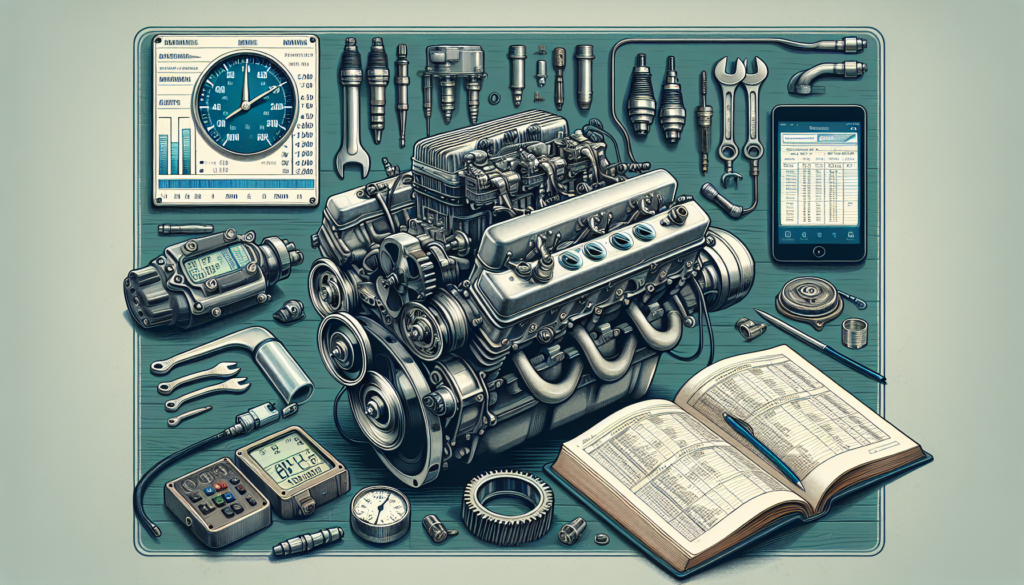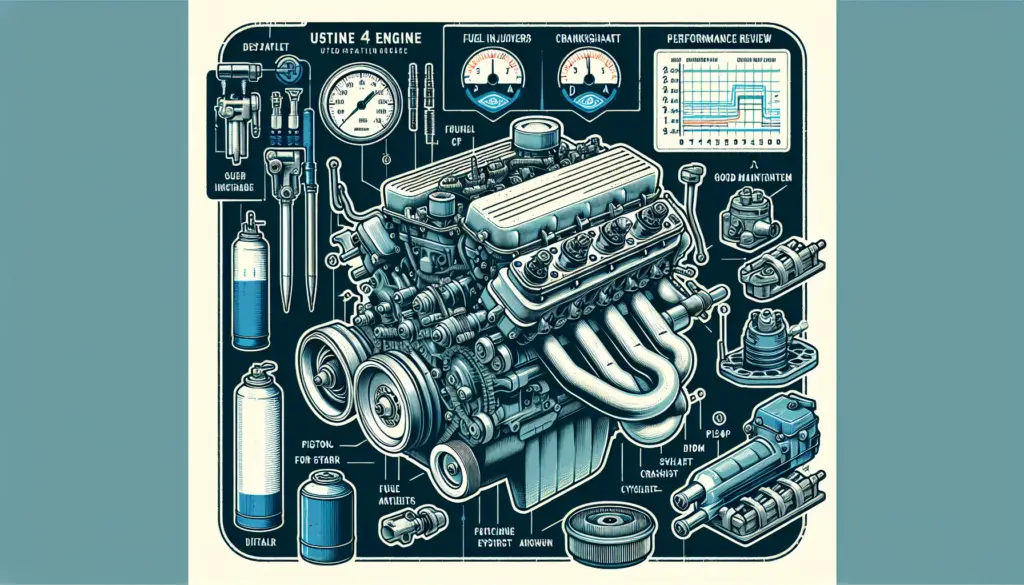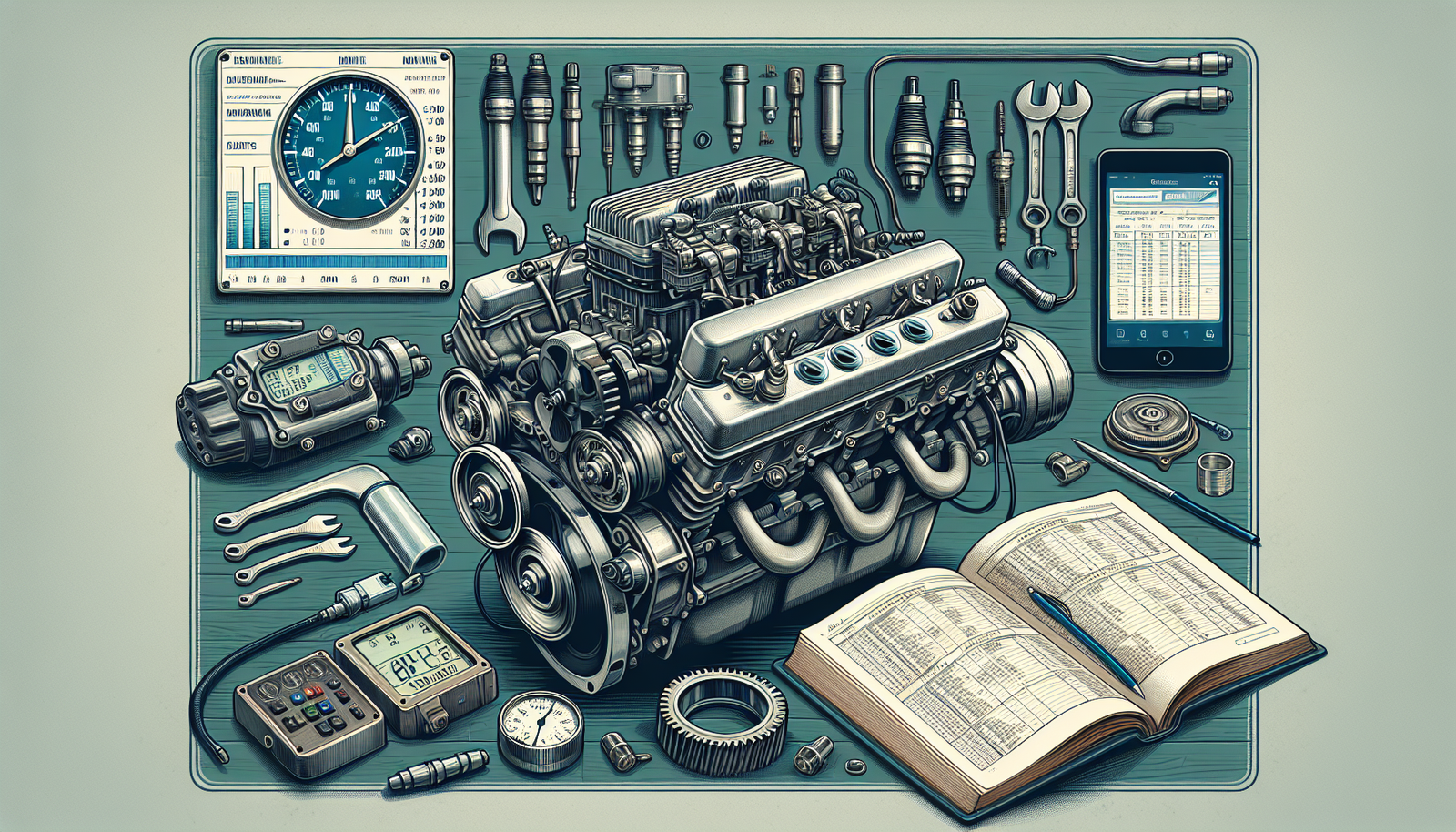As a prospective buyer, it’s critical to know exactly what to keep an eye out for when purchasing a used boat engine. “Buyer’s Guide: What to Look for When Buying a Used Boat Engine” offers you everything you need to know; from the key features to consider and identifying potential red flags to ensuring your engine is sea-ready and reliable. Owned or first-time, you’ll gain valuable insights, turning you from a cautious buyer into an informed one, capable of finding a second-hand engine that won’t quit when you’re out on the water.

Understanding Boat Engines
Boat engines are a crucial component of any watercraft. They are the heart that pounds under the deck, providing the power that you need to navigate the waters and reach your desired destination. Understanding these engines is important, not only for smooth sailing, but also for making an informed decision when looking to buy one.
Different Types of Boat Engines
Boat engines are typically categorised into three main types: outboard, inboard, and inboard/outboard (I/O) engines. Outboard engines are mounted on the stern’s outside and tend to be easy to service, making them a favourite for small to medium-sizes boats. inboard engines are situated inside the boat’s hull – a preferred option for larger boats due to their power, speed, and ability to reduce noise and vibration. The inboard/outboard (I/O), also known as the sterndrive, is a mix of the two and acts as a propeller and rudder in a single package, serving as a speed and manoeuvrability asset for medium-sized boats.
Functionality of Each Type
The functionality of each engine type is embodied in its design. Outboard engines are designed with an integrated gearbox and propeller, making them mainly responsible for steering. Inboard engines, on the other hand, are more about pure propulsion and rely on a separate rudder for steering. The I/O engines possess both features, propelling the boat and determining its direction. The choice between these engines often comes down to the boat size and the preferred balance between power and control.
How Engines Can Affect the Boat’s Performance
The engine’s power output, also known as horsepower, has a direct effect on the boat’s performance. A high-powered engine will enable the boat to attain high speed but too much power can make the boat difficult to control, particularly in challenging weather conditions. Too little power can lead to the engine being overworked, resulting in possible damage. Weight distribution can also be affected by the placement of the engine and can affect the overall balance and performance of the boat.
Checking the Engine’s Condition
When purchasing a used boat engine, it’s standard practice to thoroughly inspect the engine’s condition to make sure you get value for your money.
Physical Appearance Check
It’s as simple as it sounds. Look at the engine. Observe cleanliness, paint condition, belts, hoses, and wiring. Tangled wires or cracked hoses could indicate that the engine hasn’t been maintained properly. Remember, a clean engine is a good sign of a well-maintained engine.
Signs of Rust and Corrosion
Check for any signs of rust or corrosion on the engine. These can be indicators of neglect and can lead to serious future problems. Pay special attention to cooling systems, exhaust manifolds, and lower units. If left unchecked, rust will degrade metal parts, ultimately leading to failure.
Cooling Systems Inspection
A properly functioning cooling system is critical in preventing the engine from overheating. Check for any signs of coolant leaks and ensure the coolant levels are correct. Cooling fins should be intact and not blocked with debris.
Look for Oil Leaks
Oil leaks are a significant red flag. They can indicate a worn-out engine, which could be costly to repair. Check for any oil stains around the engine and make sure the oil level is within the correct range.
Inspecting the Engine’s Performance
Performance inspection can provide a clearer picture of the engine’s functionality.
Running the Engine
Start the engine and observe the exhaust. Clean, white vapour is a good indicator that the engine is in good shape. Thick, black exhaust, on the other hand, can signify engine trouble.
Listening for Unusual Noises
Every engine has its unique sound. Listen for any unusual rattling, knocking or grinding sounds. These can be indicative of potential internal problems.
Check for Smooth Handling
While running the engine, check for smooth handling. The engine should accelerate smoothly and not vibrate excessively. Any hesitation or rough running could indicate a problem.

Verifying Engine Hours
Knowing how long an engine has been used can give you a fair idea about the condition it is in and the anticipated lifespan it still has.
Importance of Engine Hours
Engine hours, much like mileage for automobiles, is a crucial determinant of an engine’s condition. It informs you how much the engine has been used. The closer it is to its lifespan limit, the more worn out it is likely to be.
Reading the Hour Meter
The hour meter is typically installed on the boat’s dashboard. It provides a record of the engine’s total running time in hours. Reading it will give you a numerical display of the engine’s usage.
Estimating Engine Lifespan Based on Hours
The expected lifespan of an engine depends on various factors such as the type of engine, manufacturer, and regular maintenance. However, an inboard diesel engine, for instance, can run for about 5,000 hours if properly maintained. An outboard engine, on the other hand, has a lifespan of about 2,000 hours. You can check the manufacturer’s specifications to get an accurate estimation.
Enquiring about Maintenance and Service History
An engine’s lifespan isn’t just determined by the hours logged in; maintenance counts too.
Importance of Regular Maintenance
Regular maintenance not only prolongs the engine’s lifespan but also enhances its performance and fuel efficiency. Regardless of the engine type, routine maintenance is a must to keep it in an optimal working condition.
Verify Service Records
Ask for service records to confirm the engine has been regularly maintained. A boat engine with a well-documented service record is a good sign as this indicates its previous owner took good care of it.
Signs of Negligent Maintenance
Evidence of poor maintenance includes missing service records, rust, corrosion, signs of leaks, and worn out parts. These are strong indicators that an engine has not been properly looked after.
Determining the Boat Engine’s Age
The age of the engine is another critical factor to consider when buying a used boat engine.
Decoding the Engine Serial Number
The engine’s serial number can provide information about its age. This number is usually found on an engine’s information plate or stamped on the side of the block.
Factors Affecting Engine Performance with Age
As engines age, their performance tends to drop due to wear and tear. Older engines may experience reduced fuel efficiency, oil leaks, and can be more prone to breakdowns.
Problems Associated with Older Engines
Older engines may also have parts that are hard to replace if they break down. Manufacturers may have stopped making certain parts for older models, making repairs difficult and potentially costly.
Checking Fuel System and Fuel Type
Fuel systems and fuel types are important points to consider, as they can impact both performance and maintenance.
Fuel Systems Inspection
Inspect the fuel system for leaks and check the condition of fuel lines and the fuel tank. Look at the fuel filter to see if it’s clean and check the carburettor for any signs of gunk build-up.
Pros and Cons of Diesel vs Gasoline Engines
You also need to consider the type of fuel the engine uses. Diesel engines are usually more fuel-efficient and reliable but tend to be more expensive upfront. Gasoline engines may be cheaper to purchase and maintain, but they may not last as long or be as fuel-efficient.
Ensuring Compatibility with Your Boat
Ensure the engine you plan to buy is suitable for your boat to prevent any compatibility issues.
Matching Boat Size and Engine Power
Ensure that the engine’s power matches your boat’s size to balance speed and navigability. A motor that’s too small might not have enough power, whereas an engine that’s too large might prove difficult to handle.
Weight of the Engine
Consider the weight of the engine as it could affect your boat’s stability. A heavy engine on a light boat could make it unsteady or even unsafe.
Installation Requirements
Ensure that your boat can accommodate the engine in terms of space and mounting requirements. Some motors may require advanced installation procedures or additional support, which can add to cost and complexity.
Getting a Professional Inspection
While personal inspection is crucial, a professional inspector can give you more detailed insights into the condition and value of the engine.
When to Consider a Professional Inspection
Consider getting a professional inspection if you are not comfortable evaluating the engine condition yourself or if you’re looking at an expensive purchase. Professionals have the skills and tools to give you a comprehensive report about the engine’s condition.
What Inspectors Look For
Professional inspectors look at everything from compression levels and ignition systems to lower units and cooling systems. They’ll perform a comprehensive check that covers components you might overlook.
Understanding Inspection Reports
Inspection reports can provide vital information about the engine. They detail the components checked and their state, giving you an extensive understanding of the engine’s condition and any potential issues that may arise in the future.
Factors That Influence Boat Engine Prices
Many factors contribute to the pricing of boat engines. Understanding them helps you negotiate a fair price.
Average Cost of Used Boat Engines
The cost of used boat engines ranges depending on factors like power output, brand, age, and type. An older outboard engine for a small boat, for example, often costs less than a newer powerful diesel inboard engine meant for larger vessels.
Features That Increase Price
The price can also increase for engines with unique features like power tilt and trim, electric start, or those that comply with emission standards. High-performance engines also tend to cost more.
Negotiating a Fair Price
Having a clear understanding of the engine’s age, condition, service history, and engine hours can give you a fair idea of its value. This information aids in negotiating a price that matches the value you’re getting.
In conclusion, buying a used boat engine can be a cost-effective way to replace or upgrade your boat’s motor. However, it requires you to perform a thorough assessment to avoid getting an engine that performs poorly or breaks down often. Remember, clarity of information is power when making this decision.

